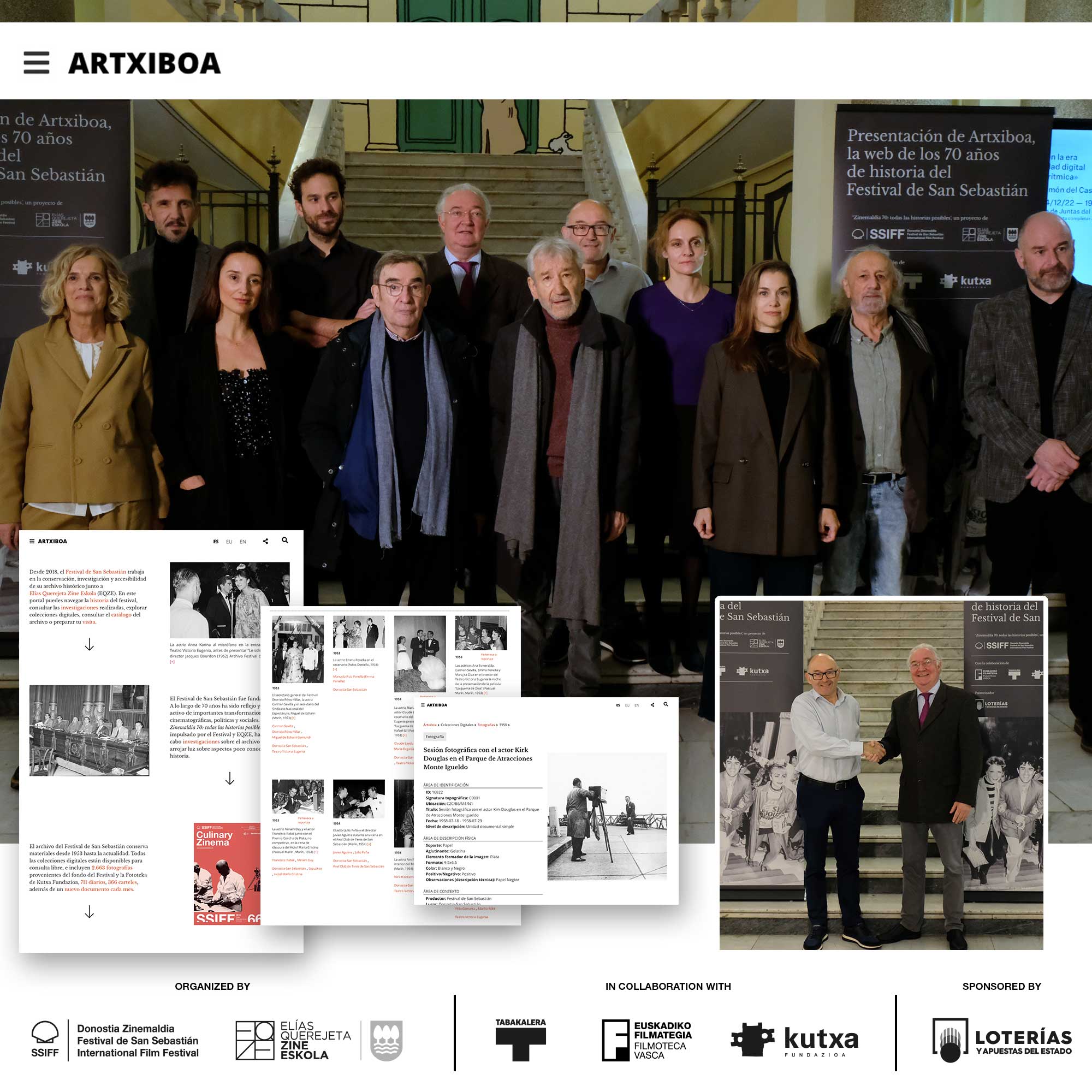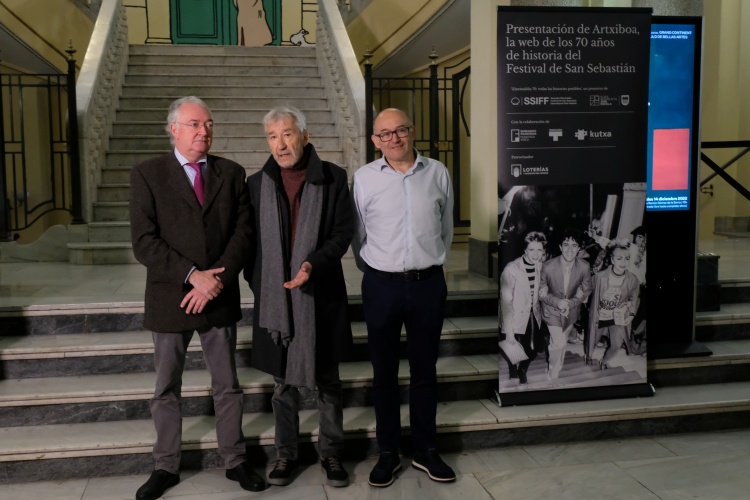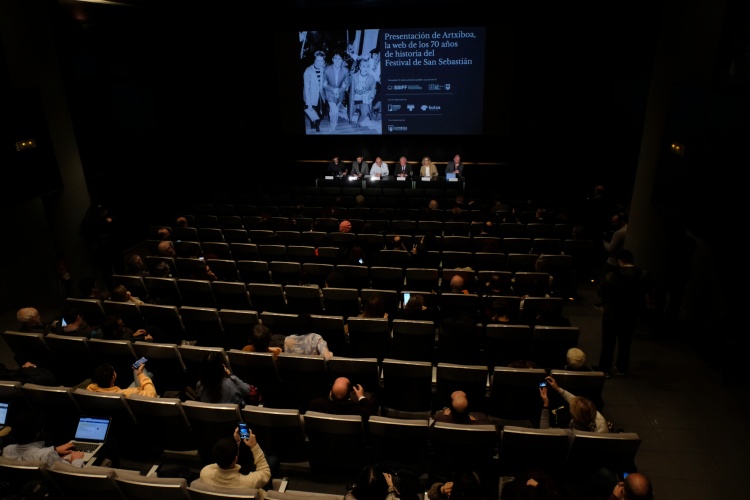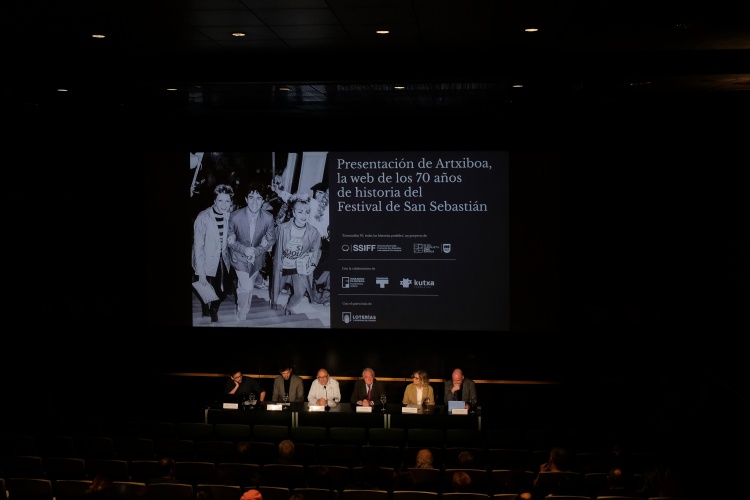Sponsored by Loterías y Apuestas del Estado, the research project developed by the Festival and the Elías Querejeta Zine Eskola, with the collaboration of the Filmoteca Vasca, Medialab Tabakalera and the Kutxa Fundazioa, brings its first phase to an end
More than 4,000 documents in the San Sebastian Festival’s historic archives (correspondence, photographs, posters, dailies…) are available from today, 13 December 2022, for online and on-site consultation in the website atrxiboa.sansebastianfestival.com. This new website also offers a catalogue of more than 27,000 fact sheets on materials available for consultation on request by professionals and specialists in the fields of education and research.
The Artxiboa website represents completion of the first phase of the Zinemaldia 70: all possible stories project, started in 2018 by the San Sebastian Festival and the Elías Querejeta Zine Eskola (EQZE) to conserve and study the Festival archive, compiled since its foundation in 1953, while also making its documents available for consultation by the general public. The initiative enjoys the collaboration of the Filmoteca Vasca, Medialab Tabakalera and the Kutxa Fundazioa and is sponsored by Loterías y Apuestas del Estado.
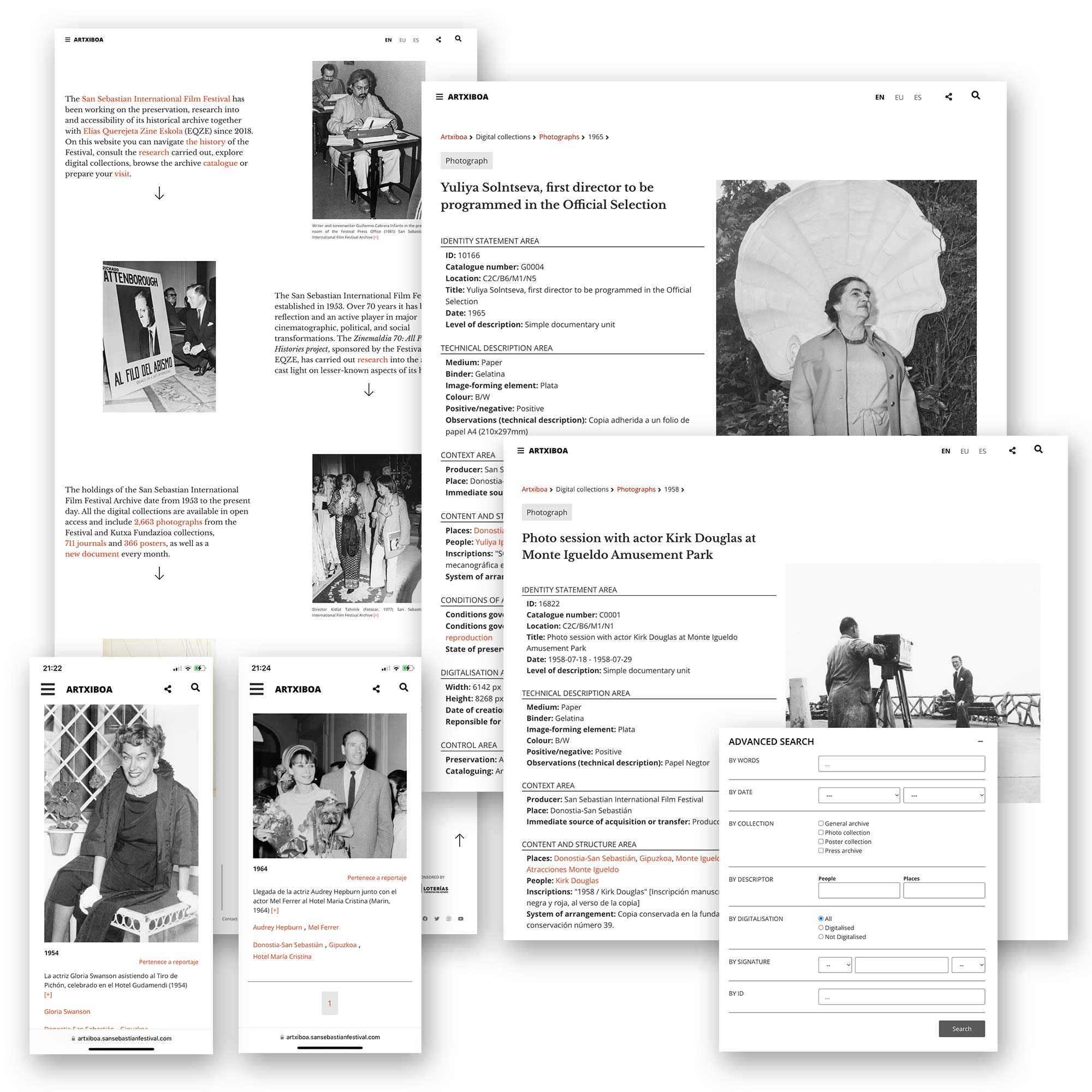
Presented today by its promotors, collaborators and sponsors at the Círculo de Bellas Artes in Madrid, the page offers digitalised copies of more than 3,000 photographs from the Festival’s own collection and that of the Kutxateka; 711 copies of the Festival daily (now going by the name of Zinemaldia), of which we have issues dating from 1954 until today; some 350 posters from almost all of its editions, and selected material from the General and Press Archive. The digitalised copies available on the website are published under the licence Creative Commons BY-NC-SA, except in cases which, for copyright reasons, require publication under more restrictive licences.
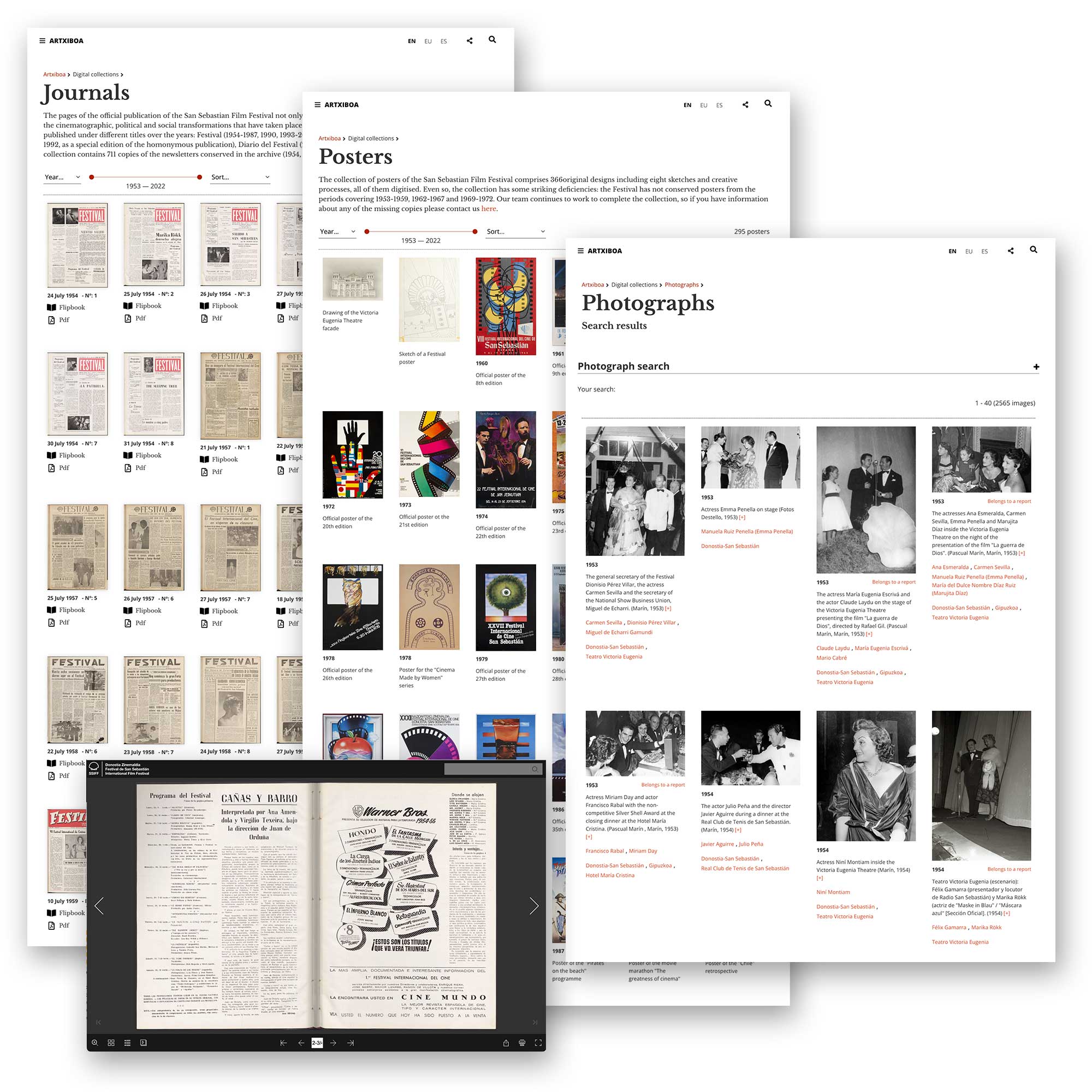
The website is made up of different sections covering the Festival’s 70 years of existence. In the 70 editions section, visitors can consult data on the different editions, year by year; Research includes the chapter Historiak – informative essays written based on the archive materials – plus digital copies of the photography exhibitions held to date and information on the public programmes promoted by Zinemaldia 70; Digital collections encompasses the section Document of the month, the Festival dailies, posters and photographs; Catalog includes search engines for the general public and professionals; and Visit and use the archive gives information on how to access the material both online and in person.
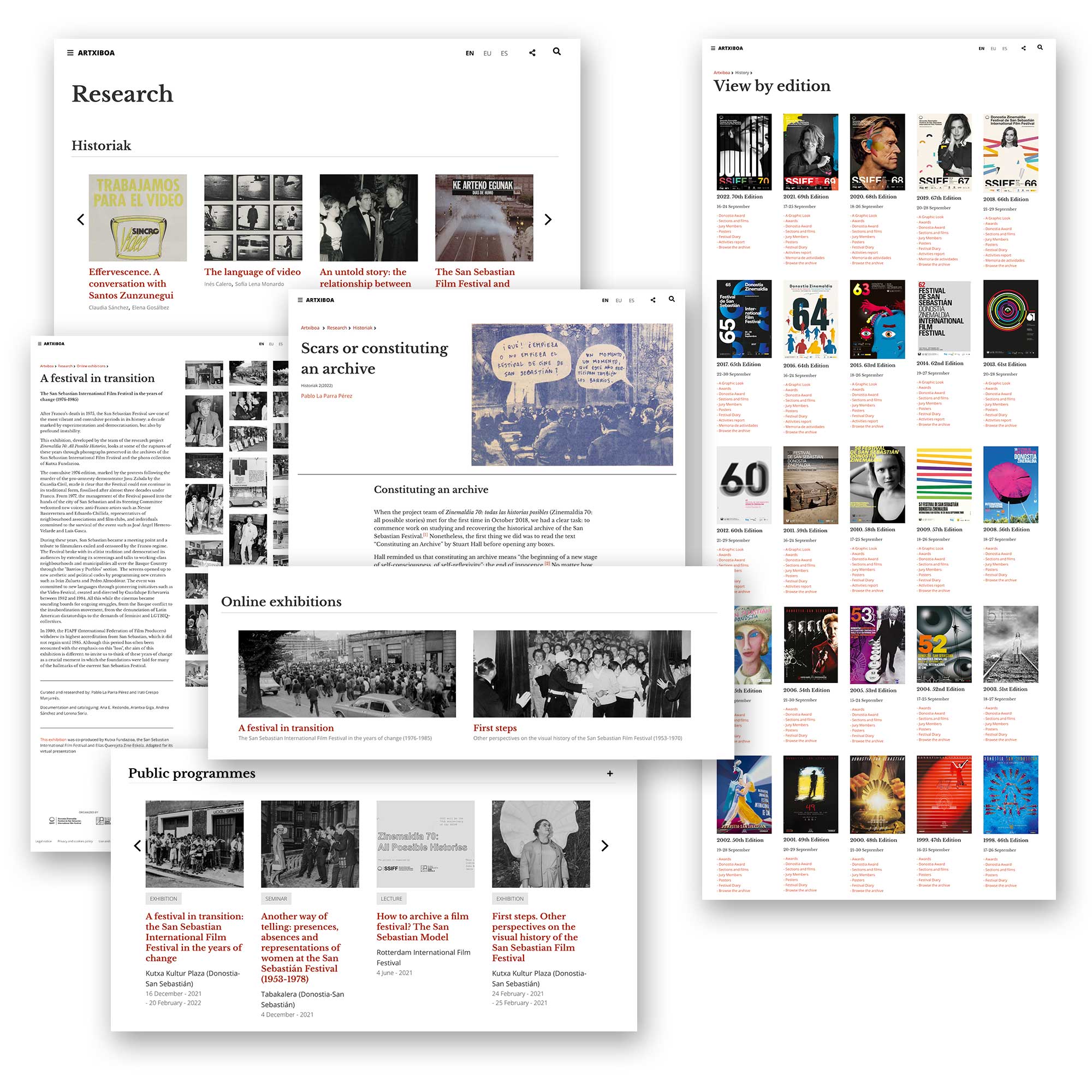
In keeping with the title of the project, Zinemaldia 70: all possible stories, every time a person enters the website, the welcome page will bring up a new item from a wide variety of archive materials. This means that the website presentation will never be the same twice given the endless combinations that already exist and are set to increase as the archive grows with the addition of new digital material. At the end of this first phase, the team will continue to work on processes to conserve, catalogue and digitalise the collection, with the future inclusion of audiovisual material, while promoting research and critical thought on the subject of the archive itself.
On the other hand, the website contains an inventory enabling the consultation of more than 27,000 catalogued entries corresponding to objects conserved in the archive and which, independently of whether or not they have been digitised, come with an adequate description and their location. These materials (mainly administrative documents and correspondence, press files, photographs and posters) can be examined in person from January 2023 in the reading room of the Filmoteca Vasca. This option is exclusively reserved for education and research professionals who request a visit through the website.
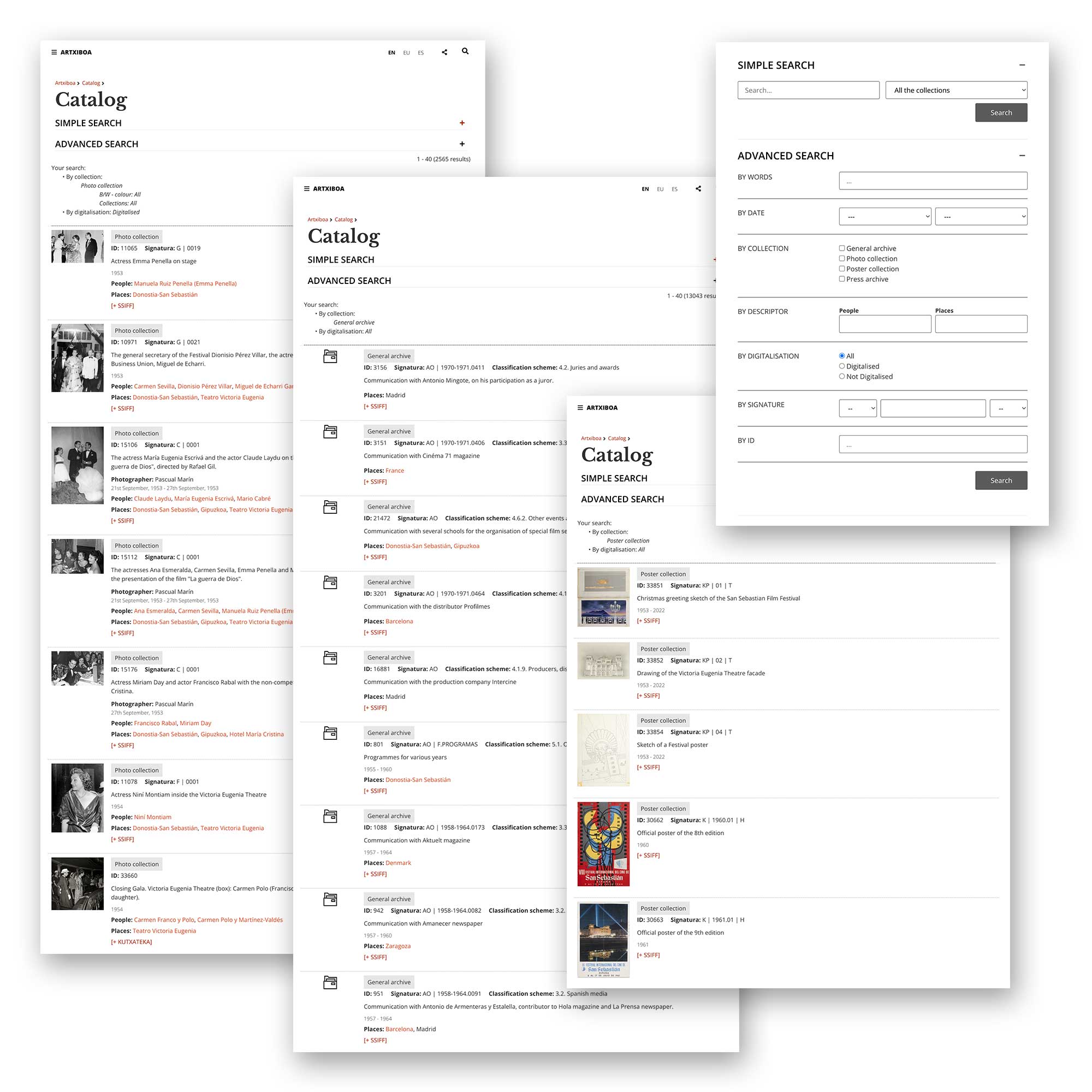
In addition to guaranteeing the long-term conservation of the collection and its consultation, the main aim of this first phase of the project has been to generate a living archive, a space for reflection and discussion on the past, present and future of the Festival, open to critical dialogue with contemporary creation, research and thought. To this end, ever since the beginning of the project a number of research areas have been defined and developed by a team of post-graduate students at the EQZE, directed by the researcher Pablo La Parra Pérez in collaboration with the Festival’s different departments. The research areas have placed emphasis on somewhat or completely unknown aspects of the Festival’s history: film censorship under Franco, its transformations and democratisation in the years of the Transition, a look at the Festival’s visual history from a critical and feminist point of view through its photographic legacy, the participation of film students and schools in the competition from the first film schools meetings held in the 60s until today’s Nest and the Video Festival organised by the event from 1983 to 1985.

Loterías with Culture
This project has had the sponsorship of Loterías y Apuestas del Estado during the four years of its development. This support of the archive falls under the initiative “Loterías with Culture”, through which the public company helps to spread and preserve our culture. It also promotes access to culture by the general public, thereby strengthening the values of a democratic society capable of thinking and deciding for itself.

Public presentation in San Sebastian
On Saturday 17, the Tabakalera cinema will host the public presentation of the San Sebastian Festival archive. At 16:30 there will be a conversation moderated by the head of the research project, Pablo La Parra Pérez, together with Maialen Beloki (San Sebastian Festival), Carlos Muguiro (Elías Querejeta Zine Eskola), Arantza Mariskal (Medialab Tabakalera), Joxean Fernández (Filmoteca Vasca) and Ane Abalde (Kutxa Fundazioa). Following this, at 17:15, the restorers Lorena Soria, Andrea Sánchez and Anna Ferrer Homs will participate in a round table, explaining the key techniques involved in the process of conserving and cataloguing the collection. Irati Crespo, coordinator of the project Zinemaldia 70, will give a practical explanation of how to access the Festival’s collection in her talk An open archive: access, consultation and use of materials. Pablo La Parra will then give a talk entitled A living archive, research and thought. The event will end with screening of the short film ¿Cuáles son nuestros años?, by Clara Rus, one of the first year of students to graduate at the EQZE, documenting the first meeting of the EQZE students with the Festival archive in 2018.



